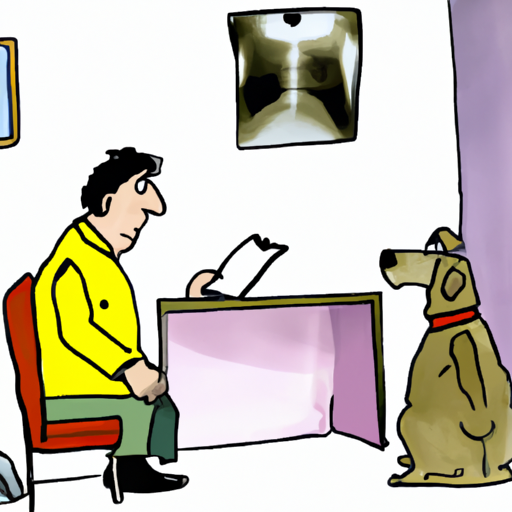“`markdown
How Do Dogs Get Lung Cancer?
Understanding Lung Cancer in Dogs
Hello, dear caregiver. You’ve probably stumbled upon this page because you’re worried about your furry friend. It’s hard not to fret, isn’t it? Especially when it comes to diseases as scary as cancer. But remember, knowledge is power. By understanding how dogs get lung cancer, you’re already taking a step towards looking out for your pet’s health.
Lung cancer is not as common in dogs as it is in humans, but it does happen. It can occur as a primary lung tumor, which starts in the lungs, or as a secondary tumor, which starts elsewhere in the body but metastasizes to the lungs. In most cases, lung tumors in dogs are malignant, meaning they are cancerous and can spread.
Risk Factors for Lung Cancer in Dogs
“Prevention is better than cure,” they say. Identifying the risk factors can significantly help keep your dog safe. Here are some common factors that could increase your dog’s risk of lung cancer:
- Age: Older dogs are more likely to develop lung cancer than younger ones.
- Breed: Certain breeds like Boxers, Dobermans, and Irish setters are more prone to lung cancer.
- Secondhand smoke: Yes, you read that right. Dogs can get lung cancer from secondhand smoke, just like humans.
Symptoms of Lung Cancer in Dogs
To detect lung cancer early, be aware of the following symptoms:
- Persistent cough
- Difficulty breathing
- Loss of appetite
- Weight loss
- Lethargy
If your dog shows any of these symptoms, consult your vet immediately.
Diagnosis and Treatment of Lung Cancer
Lung cancer in dogs is usually diagnosed through a combination of x-rays, blood tests, and biopsies. Treatment options can include surgery, chemotherapy, and radiation therapy. Each case is unique, so the course of treatment will be tailored to your dog’s needs.
| Diagnostic Test | Purpose |
|---|---|
| X-ray | To visualize tumors |
| Blood Test | To assess overall health |
| Biopsy | To confirm cancer |
FAQs
- What is the survival rate for dogs with lung cancer?
The survival rate depends on various factors including the stage of the cancer and the dog’s overall health. Early detection and treatment can significantly improve survival rates.
- Can lung cancer in dogs be prevented?
While it’s not possible to prevent all cases, reducing exposure to risk factors like secondhand smoke can help.
- Is lung cancer painful for dogs?
Dogs might not show pain the way humans do, but cancer can cause discomfort and pain.
Remember, as a caregiver, your invaluable love and support can make a world of difference to your pet’s health. Stay informed, stay observant, and most importantly, stay positive.
“`



